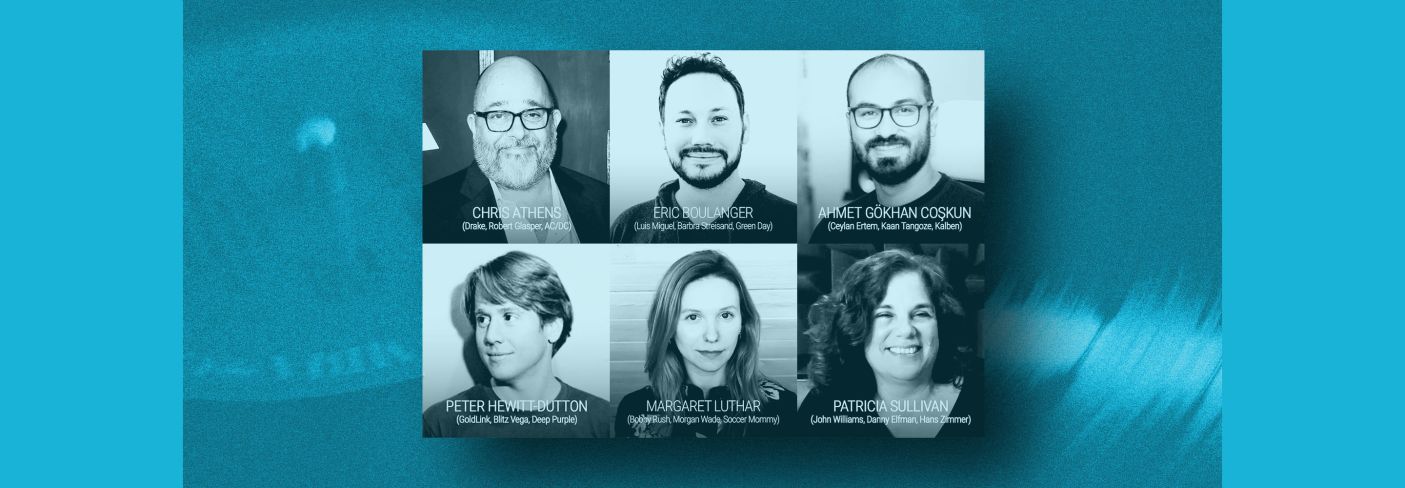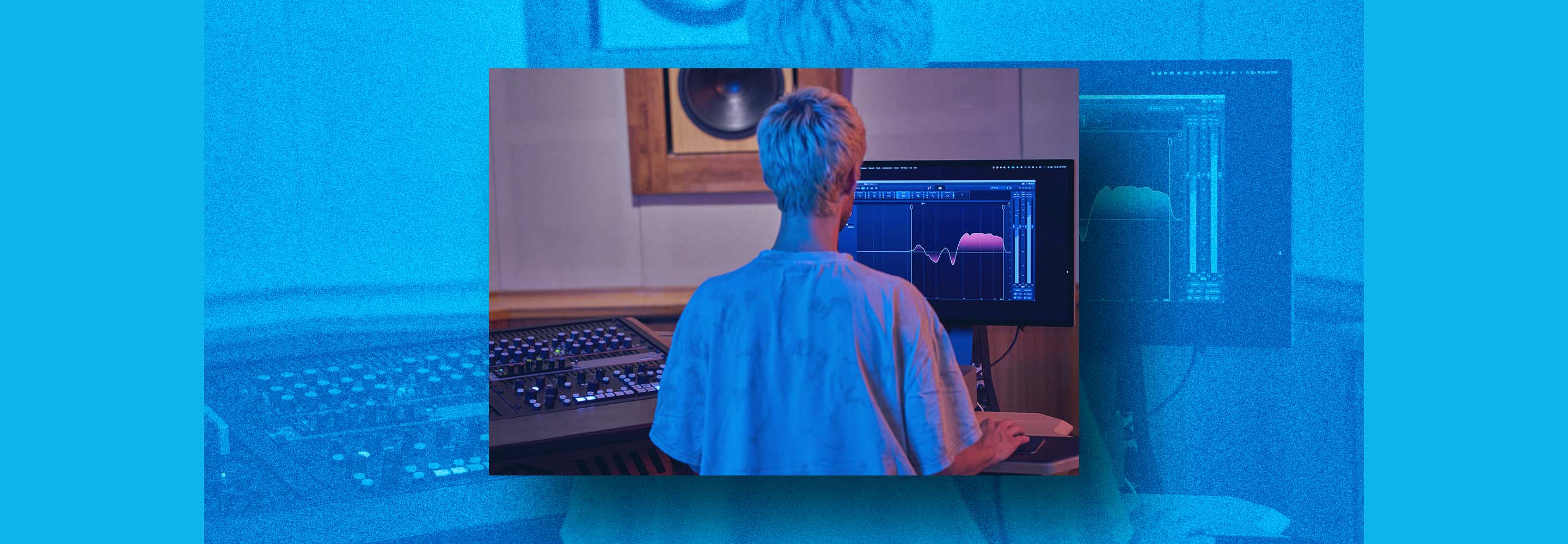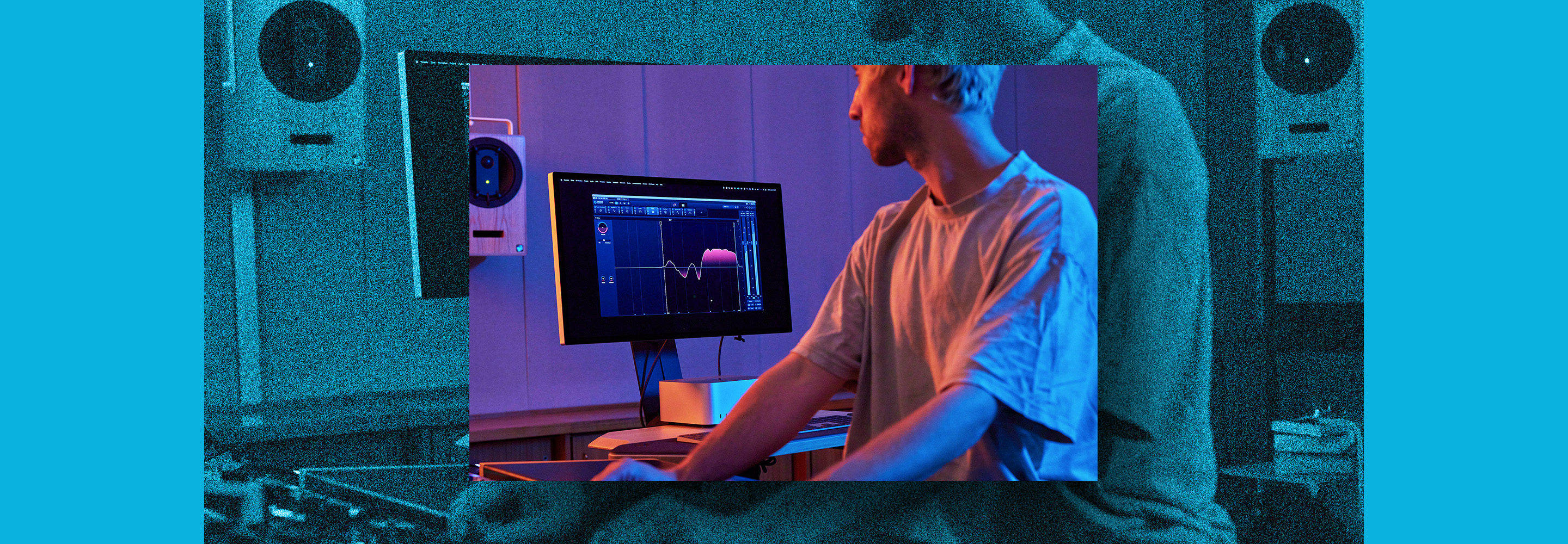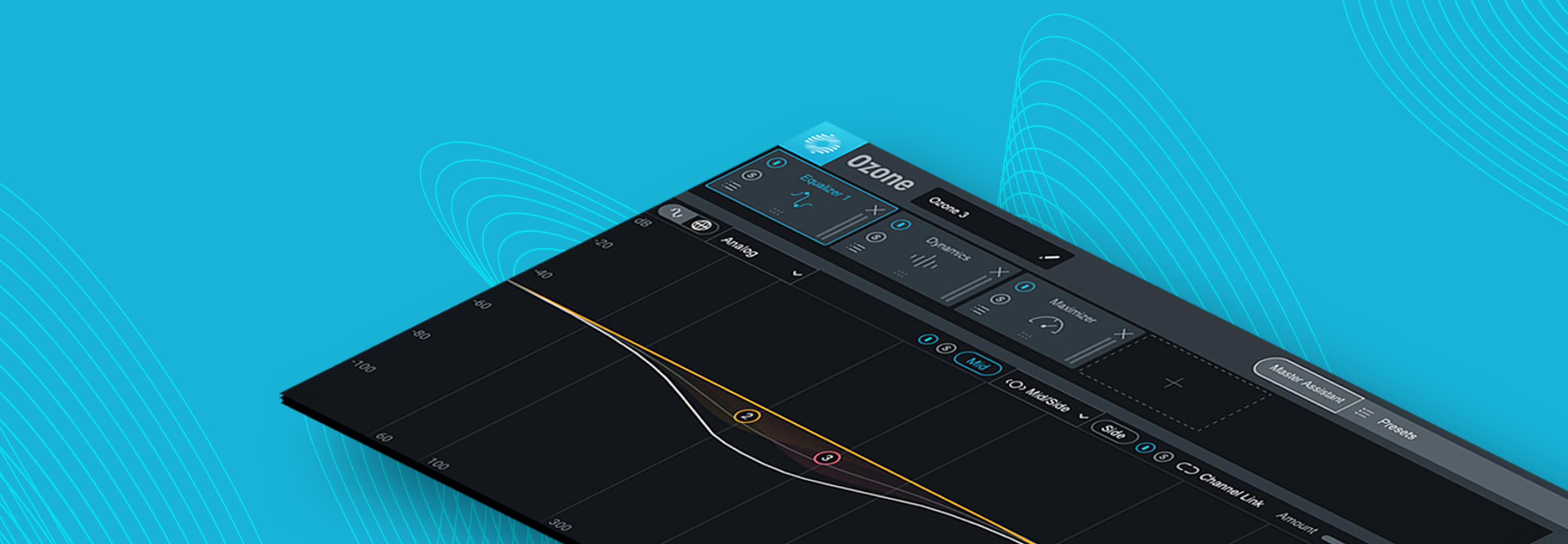
10 Beginner Mistakes to Avoid When Mastering Music
Audio mastering can be easy to navigate, as long as you avoid these 10 beginner mistakes according to professional mastering engineers.
Mastering tends to have the notorious reputation of being difficult for aspiring engineers to learn. But being highly-skilled in mastering is absolutely attainable with the help of patience, critical listening and love of music. With today’s state-of-the-art production tools being more accessible at your fingertips, it’s much easier to explore all facets of music production at the comforts of your own workstation—from recording, mixing, to mastering.
But access to technology doesn’t always mean an easier path to great-sounding masters. By reading through this list of beginner mistakes to avoid when mastering music, you stand a better chance of making informed decisions that would lead to a more productive mastering journey.
My huge thank you to our seasoned mastering engineers who took their time to share their helpful insights on this topic: Chris Athens, Eric Boulanger, Ahmet Gökhan Coşkun, Peter Hewitt-Dutton, Margaret Luthar, and Patricia Sullivan.

Thank you to the following mastering engineers for taking their time to share their helpful insights on this topic
To experiment with mastering your tracks, download a free demo of Ozone, iZotope’s intuitive mastering plug-in.
Jump to these mistakes to avoid when mastering:
- Being afraid to make mistakes
- Not calibrating your workstation for mastering
- Getting too fixated on gear and plug-ins
- Jumping straight into mastering without listening intently
- Not collaborating/communicating enough with other artists, producers, engineers
- Aiming for loudness at the expense of musical integrity
- Overprocessing, a.k.a. throwing everything including the kitchen sink into your signal chain
- Not listening to your masters outside the studio environment
- Not prioritizing project management or client management enough
- Depending entirely on internet articles and web forums to learn mastering instead of live music
1. Being afraid to make mistakes
This goes without saying. But it’s especially important for mastering given its reputation of being the “dark arts” of music production. For many, this can lead to inaction, or at the very least, the unwillingness to master a project until they think they’re ready or “good enough.” There’s no better teacher than experience. Mistakes and failures are an integral part of that, so seize the opportunity. Get your hands dirty by sharpening your mastering skills now and learning from mistakes along the way. Any award-winning mastering engineer can vouch for this tried-and-tested strategy based on their own experience.
2. Not calibrating your workstation for mastering
This is a common mistake that’s often overlooked by beginners. A lot more attention is given to learning how to apply EQ, compression, limiting, etc. But the effectiveness of our mastering almost entirely depends on how accurately we hear the music. Take the time to ensure that your listening environment is as accurate as you can possibly make it.
Next and equally important is to calibrate your monitoring levels for mastering. This is even more crucial in a multi-purpose environment where various types of productions happen on a regular basis (recording, mixing, mastering). Calibrating to a fixed monitor gain for mastering allows you to make more consistent mastering decisions while allowing you to build an internalized compass for nuanced details such as tonal balance and loudness. Listening to mastering references as you calibrate your workstation can also help you gain a better context of your listening environment.
3. Getting too fixated on gear and plug-ins
“A theme I've noticed a lot among beginners in mastering is wanting to just play with gear too quickly, rather than listening to the music.” - Peter Hewitt-Dutton
It’s easy to fall into the trap of collecting shiny new tools all the time. Not to say it’s wrong to find joy in collecting gear. Many producers and engineers can absolutely relate to this. But when mastering, this shouldn’t take the place of listening to the music itself (as opposed to the gear) and making mastering decisions that serve the music, first and foremost.
And especially as a beginner, you’d be in a much better starting point when you take it slow on the gear-collecting so you can be adept at the tools you already have. Take the time to listen and understand every parameter. Knowing the ins and outs of the tools you have makes your mastering skills more powerful than having a huge arsenal of tools you’re not intimately familiar with. This also results in having more intention when it’s time to expand your toolset.
“(Refrain from) acquiring more gear or plug-ins before becoming proficient on what you already have! Understanding how to use what you got (this includes training your ears!) is important in order to learn what additional tools you need.” - Margaret Luthar

Resist the temptation to keep acquiring more gear before becoming proficient with what you already have.
4. Jumping straight into mastering without listening intently to the music
“In my opinion, the common mistake beginners make when mastering is immediately processing and tweaking knobs before fully understanding the mix. Appreciation of the mix is key to gaining a better perspective of the song you’re mastering. For me, feeling the vibe—the tonal and dynamic characteristics of the song that the artist, producer and mix engineer tried to achieve—is the most important information. Once you’ve achieved that, the mastering process becomes easier and much more efficient.” - Ahmet Gökhan Coşkun
Mastery of your tools is just one step towards becoming a better mastering engineer. The more important step is learning how to apply this knowledge to the unique needs of the music you’re mastering. A common beginner mistake is reaching for the knobs and immediately applying a common processing technique—like a high-pass EQ or inserting your favorite mastering compressor—without putting much thought into the “why”. What works for one song won’t necessarily work for another, so intention is key. As Ahmet Gökhan Coşkun mentioned above, taking the time to thoroughly listen is crucial to understanding what mastering process is needed for the music.
5. Not collaborating/communicating enough with other artists, producers, engineers
Collaboration is essential to the production process and this is especially true with mastering. Mastering is best accomplished with a fresh set of unbiased ears, letting you hear the music from an objective big-picture perspective. Unlike mastering your own music, collaborating with a client gives you this perfect opportunity to exercise those mastering chops in a purely unbiased context.
You also get the added benefit of sharpening your communication skills. This is equally important in the world of mastering where subtlety and nuance are key. There is no one simple formula that gets you to that end goal for every project. You get there by taking the time to thoughtfully understand every client’s intent. This takes communication, patience, and the humility to set aside your own ego/aesthetic to give way to the client’s vision. Mastering engineer Pat Sullivan can attest to this based on her own experience.
“Back when I was starting out, I would sometimes try to make my masters sound like how I wanted it to sound like and not really listen to the song. Like, really listen. What does the song really need? How can I help it to better reveal its personality? The mastering process is not about me and my taste, it’s ultimately about what the artist wants and if I can help them to achieve their sonic vision. With that being said, sometimes clients will defer to me about the sonics of a project. I do my best to balance my own personal taste and what I feel the project is saying sonically.” - Pat Sullivan
6. Aiming for loudness at the expense of musical integrity
“The most common mistake I see with beginning mastering engineers is loudness. Specifically chasing the sound of hit pop records. There is a ton of pressure to ‘compete’ that frequently overshadows good taste and what might be appropriate treatment for a mix, especially since most beginning mastering engineers have to work on the most amateurish mixes. In the beginning, you find yourself struggling to ‘fix’ a mix whereas as a veteran, you tend to get much better mixes to work on. The emphasis becomes more about your aesthetic sense than trying to fix anything.” - Chris Athens
It’s easy to get carried away by the urge to master music as loud as possible. But in the process of competing against the loudest hits, you can quickly lose sight of the music itself. Nowadays, the music marketplace has been taking proactive steps to combat the loudness wars. For example, more streaming platforms have begun enabling the loudness normalization feature by default. With this, you can breathe easier knowing that the influence of loudness bias won’t stand in the way of you making thoughtful mastering decisions that best serve your music.
This is where gain-matched A/B listening comparisons shine. Take advantage of this feature so you can critically listen to your mastering adjustments without loudness bias clouding your judgment.

Take advantage of level-matched A/B listening comparisons to strategize what to fine tune in your mastering chain
7. Overprocessing, a.k.a. throwing everything including the kitchen sink into your signal chain
There is also a beginner’s tendency to go overboard with the processing—from too much EQ boost/attenuation, overcompression, down to the addition of tape emulators, exciters, transient shaping, stereo widening, reverb, etc.
Less is more. You become more effective in mastering by sticking to this mantra. Your task at the mastering stage is not to “change” the sound that’s been thoughtfully crafted and approved by the artist, producers, and engineers during the mixing stage. The goal is to enhance it so that it translates effectively across various platforms, formats and listening environments. You can achieve this more effectively through intention and restraint. Take it one step at a time, asking yourself whether the music needs a certain type of processing or not. You’d be surprised by how impactful your masters can sound even with just EQ and limiting.
8. Not listening to your masters outside the studio environment
Translatability across various platforms, formats and listening environments is one of the key objectives in mastering. As you’re starting out, part of the mastering journey is to gradually get yourself acclimated with all facets of your workstation (acoustics, signal chain, equipment, etc.) And the most effective way to do that is to habitually listen to your masters outside the studio environment and in different playback systems. This practice allows you to isolate any problem areas that may have gone unnoticed in the studio and be able to adapt, one variable at a time.
As you advance in your mastering journey and get more acclimated with your workstation, you eventually develop an internalized compass that allows you to master more accurately without worrying as much about translatability.

Listen to your masters outside the studio to ensure its translatability across various platforms, formats, and listening environments.
9. Not prioritizing project management or client management enough
“Not focusing enough on project management or client management. Knowing what makes your clients happy leads to repeat customers. Have a good system to keep track of client personal information, invoices, last project you did for them, etc. A good workflow for your projects will help you immensely as your business grows.” - Margaret Luthar
Unlike recording or mixing where you tend to focus on one project in a much longer timeframe, mastering an entire album can go by in just one day (not including revisions). So the more you get into mastering, the higher the chances that you’ll be juggling multiple projects, clients, and invoices at the same time. It’s best to be prepared for that possibility from the very beginning.
Practice optimal session file management and get into the habit of proper project management from the get go. There are countless options available—from simple, free intuitive tools such as Google Calendar to more complex options such as Airtable, Asana, FileMaker, Trello, etc. There’s no one-size-fits-all tool, so explore what works best for your needs and build from there.
10. Depending entirely on internet articles and web forums to learn mastering instead of experiencing music live
“Read no further, go out to an orchestra rehearsal and sit on the stage. Or sit in a rehearsal room with a band. Then go back to your speakers and you’ll know what you’re missing.” - Eric Boulanger
We end this list with a much-needed reminder that the best teacher, at the end of the day, is experience.
It’s especially tempting for any beginner to just stay indoors with their arsenal of state-of-the-art audio tools and learn to master with the help of the internet—from reading articles and following video tutorials to having online discourse on their favorite web forum, discord channel or subreddit. But nothing compares to appreciating music in the context of how it’s performed and consumed in a live setting. So much of the complexities and nuances of music can’t be fully grasped through articles and video tutorials. So as Eric Boulanger says above, when in doubt, go out and enjoy the music, and don’t forget your hearing protection at loud concerts!
Start mastering your music
Many of these beginner mistakes can be easily corrected by one general tip. And that is simply to listen to the music. It may sound cliche, but with so many variables that go into music production, it’s incredibly easy to get distracted and lose sight of the destination, which is to make great-sounding records. All these tools at our disposal make the mastering journey less treacherous but at the end of the day, remembering our end goal (to serve the music, first and foremost) will always yield a more enjoyable, productive mastering experience.


